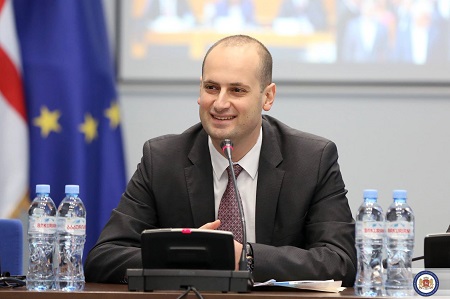Foreign Minister: “Georgia makes giant steps to join EU”

Georgia’s Foreign Minister Mikheil Janelidze believes 2016 was a historic year for moving Georgia-European Union (EU) relations forward.
At today’s summarising press conference the Minister called 2016 a successful year for the Georgian diplomacy. Welcoming rapid progress on visa-liberalisation, he hoped the Georgian citizens would be able to pay short-term visits to the EU-member states without visa from 2017.
Had an interesting meeting with journalists - Thankful for their permanent engagement in coverage of the Ministry's activities pic.twitter.com/nt2Cn4O0Hc
— Mikheil Janelidze (@JanelidzeMkh) December 28, 2016
Despite all the positive steps Georgia had made forward so far, the Foreign Minister doubted the country could join the EU in 2017. According to him, the EU was not currently oriented on enlargement; however, to approach the European standards, he believed, Georgia needed relevant legislation and necessary level of institutional development. The Minister said this would assist the EU authorities in making a positive decision regarding Georgia.
"Georgia’s integration with the EU is the guarantee of freedom and welfare of our country and precondition for restoration of its territorial integrity, reconciliation and peaceful regulation of conflicts,” Minister Janelidze said.
According to him, Georgia kept on constructive participation in Geneva International Discussions. Since the Russia-Georgia war in August 2008 the Geneva International Discussions have been the only format of dialogue between Georgia and Russia.
Janelidze said Georgian diplomats did their best to draw attention of the international community to all the burning issues the country was facing nowadays. However, the Minister stressed that Russia’s destructive action hindered any progress.
Georgia’s Foreign Minister also welcomed restoration of Gali Incident Prevention and Response Mechanism (IPRM) after four-year suspension.
Together with similar meetings in Erneti, IPRM is an important part of Geneva International Discussions. The negotiations regularly held at the Administrative Boundary Line (ABL) in Gali and Ergneti aim at finding solution to the needs of people living in the conflict affected areas.
 Tweet
Tweet  Share
Share